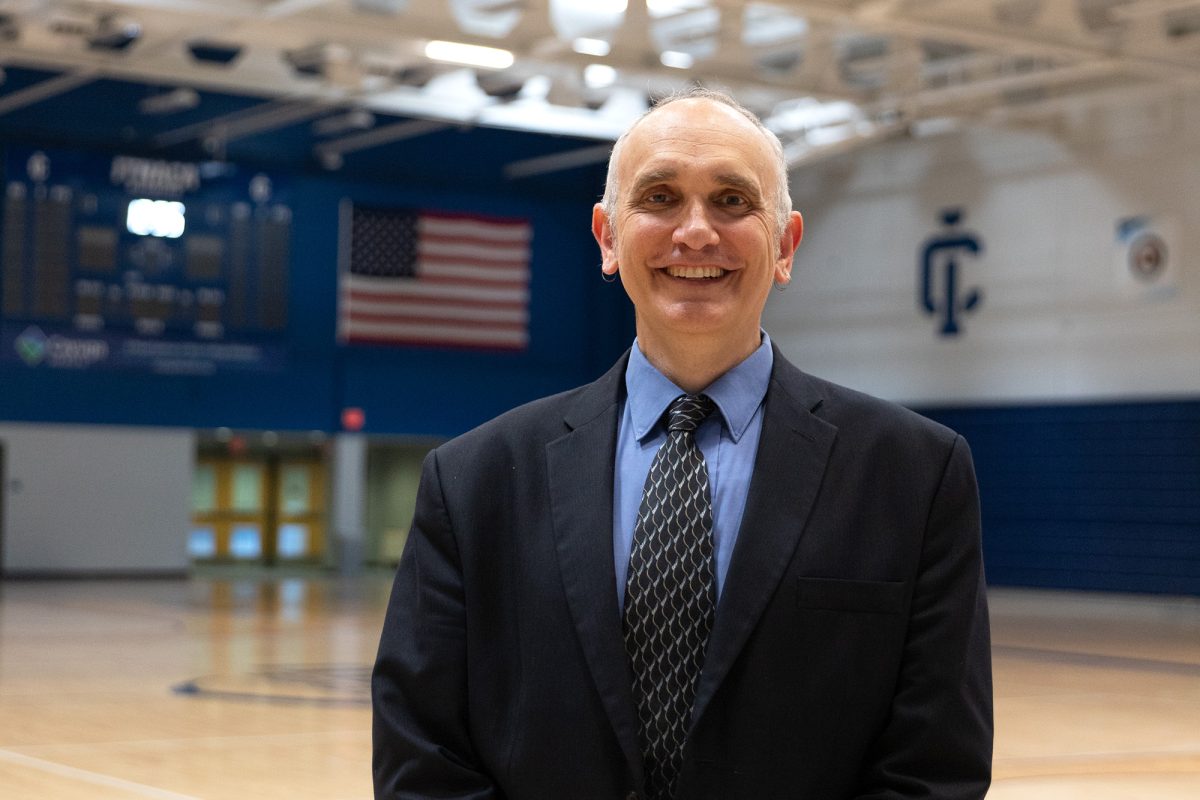
Sofia Sterbenk
Volleyball assistant coach Mark Lucas has spent over 20 years coaching volleyball in the U.S. and internationally.
The Ithaca College volleyball team added Mark Lucas to serve as assistant coach on June 16. Lucas brings decades worth of coaching experience to the Bombers, as they look to make another run in the NCAA tournament after making it to round three last season.
Lucas specializes in blocking, which is a crucial aspect of volleyball. He looks to help the Bombers in that aspect significantly.
Lucas previously served at Wells College as the head coach for men’s volleyball from 2016 – 2018 and women’s volleyball from 2016 – 2024 and at the University of Pittsburgh at Bradford for women’s volleyball in 2024. Lucas was also head coach in Kyoto, Japan, leading the men’s volleyball team at the Kyoto University of Foreign Studies to three regional championships in the process.
After coaching brought Lucas across the world, his next journey begins this season with the Bombers.
Sports editor Jonathan Falco sat down with Lucas to discuss his new role and strategy for the Bombers.
This interview has been edited for length and clarity.
Jonathan Falco: What attracted you to becoming an assistant coach at IC and how do you see yourself contributing to the program’s goals?
Mark Lucas: I was looking for a new position and it coincidentally opened up. I’ve known Johan [Dulfer, former volleyball head coach], for years, so I reached out to him and I knew Tara [Stilwell, current volleyball head coach], back when she was a player. I reached out to Johan about it, and he said, “You’re not the typical assistant coach,” but then he thought about it for a minute, and he said, “But I know you and Tara, and I think weirdly this could work.”
JF: How do you plan to build relationships with the current roster to help integrate your experience into your team’s culture?
ML: The easy part about that is the roster itself. When I was in the interview process … I got to meet the players and the team and it was the perfect team culture for what I was always looking for as a coach before. It’s just a team of competitive Care Bears, and they’re super welcoming. It’s been really easy connecting with everyone.
JF: What makes blocking your forte, and what’s the most fascinating part about it?
ML: I think having coached here in the States and overseas in Japan, having played here and overseas and also coaching both the men’s and women’s sides. When I started coaching women’s, I was always a little bit frustrated that a lot of coaches would just use blocking on the women’s side as something to help your defense set up around. On the men’s side, that’s not the case, so I thought, “Why are we not taking full advantage of using blocking as a weapon and being really aggressive with it?”
JF: What cultural or strategic differences did you encounter while coaching in Japan and how will that influence your approach with the Bombers?
ML: Coaching and playing there changed me as a player and a coach tremendously. At the end of my career, I became a much better blocker because I was getting tooled by a lot of players who were a lot smaller and younger and I had to get better. Being there for 19 years, being part of the culture changes you. I appreciate the ethic of hard work and being respectful to your teammates and your opponents, which was something I needed to learn as a player. I like taking aspects of the Japanese game that are more common … there than they are here and vice versa and trying to pull that into a team in the U.S. and creating a little extra something that teams may not even be aware of.
JF: What is your coaching philosophy, and how do you plan to implement that with the volleyball team here?
ML: I’ve always been what is called a players’ coach. I generally always kept small rosters, got to know my players really well. I preferred the Division III model, where you can play high-level volleyball, but you’ve got players who are not beholden to an athletic scholarship, that generally are at high academic schools. I think that kind of setup led itself into tying into the things that I like as a coach. I’ve always loved to find ways to improve players, to help them find their better game and as a result, have a better team and have fun too.
JF: How do you adapt your coaching style with different team dynamics and program size?
ML: I’ve never been adherent to a one-size-fits-all philosophy. For me, like I said earlier, I think this is the perfect kind of team culture that allows me to take full advantage of the things that I like to do and the things that I have the most experience at doing.
JF: Why should people want to follow your team this year?
ML: They enjoy playing volleyball and they’re good at it. If you watch them play, that will become apparent, and it will be an enjoyable experience for you.